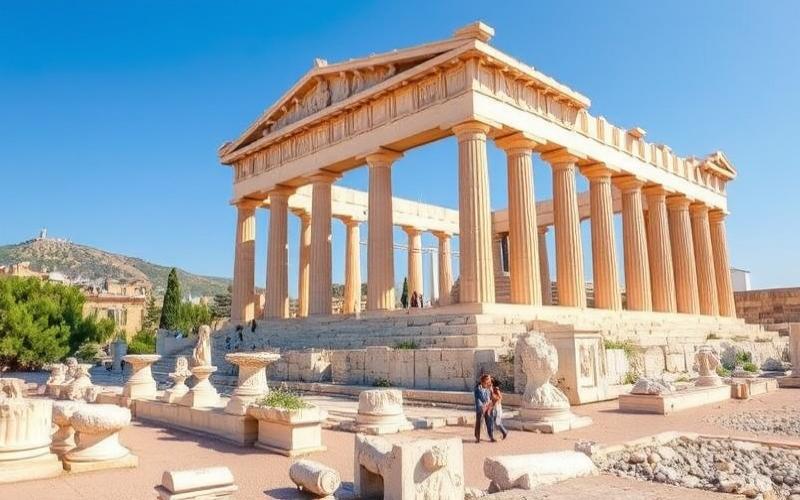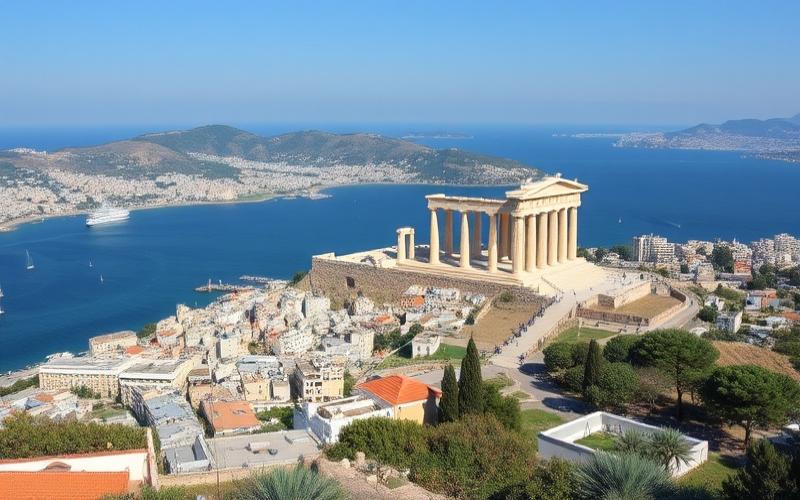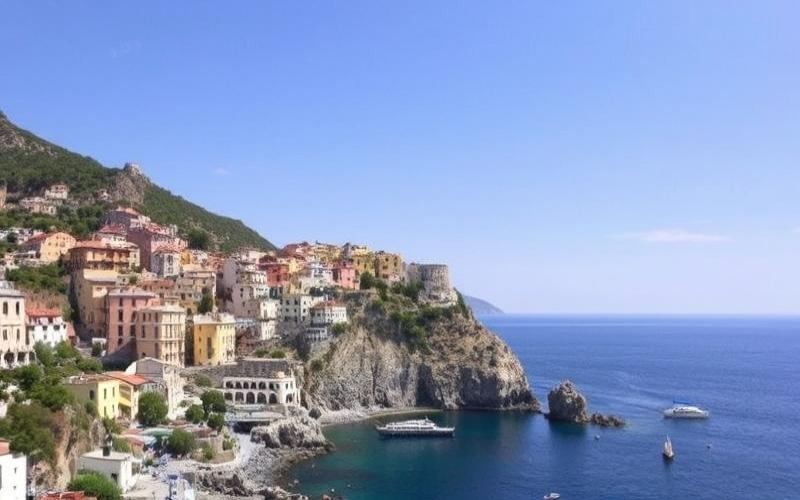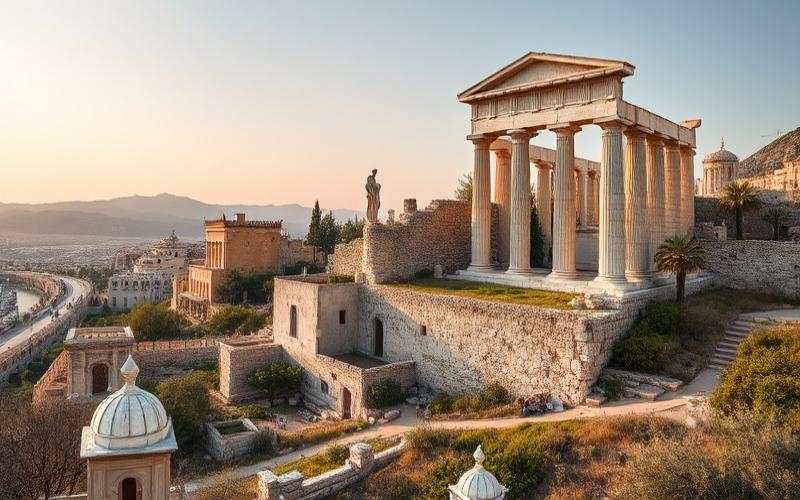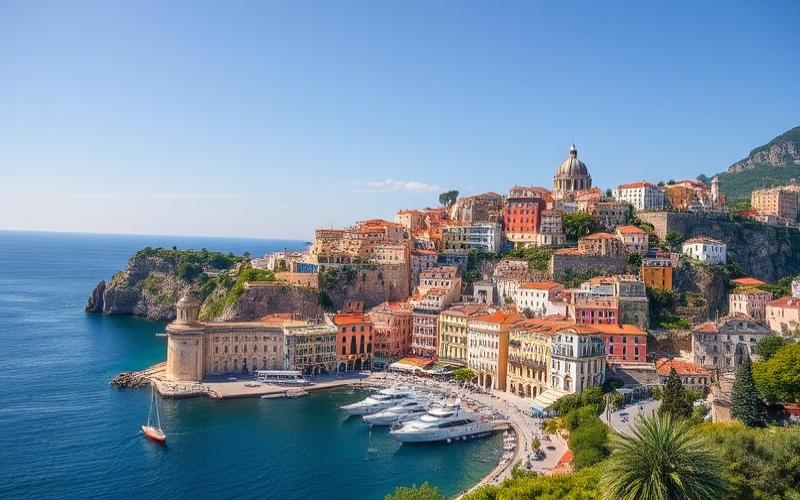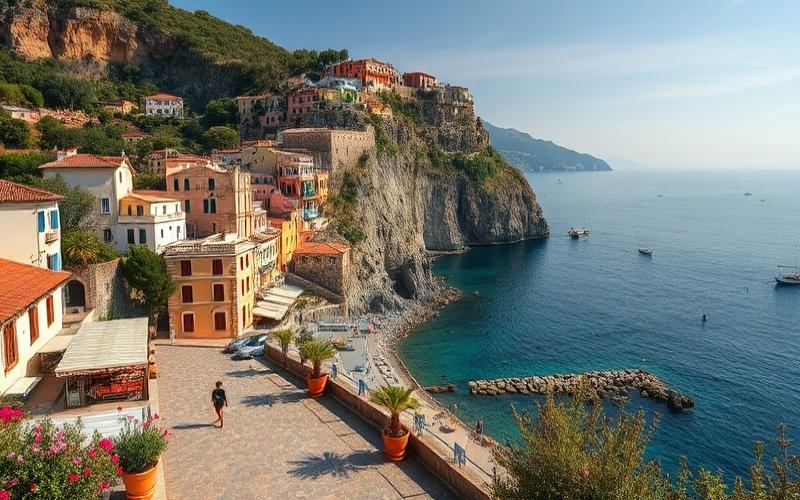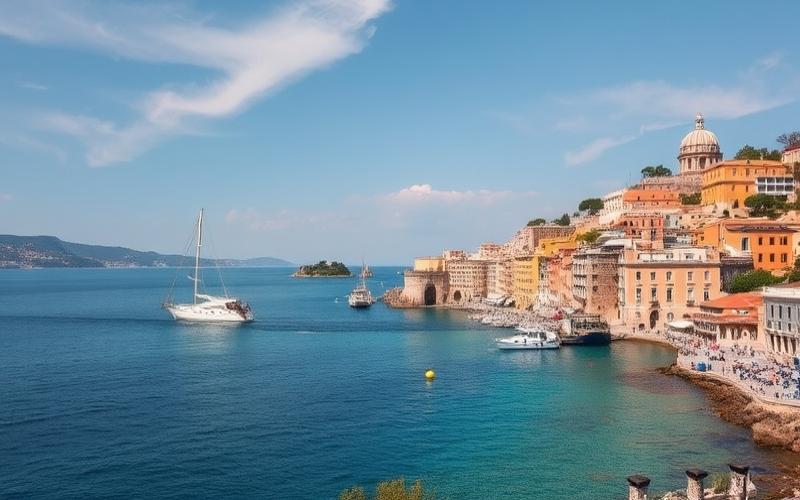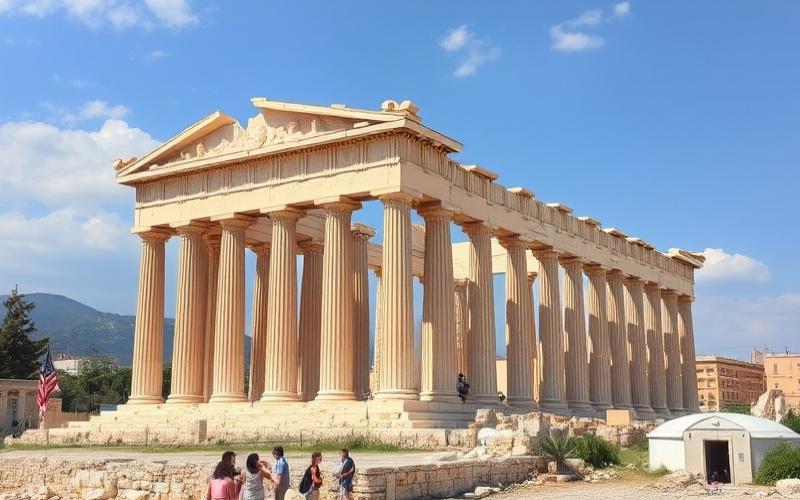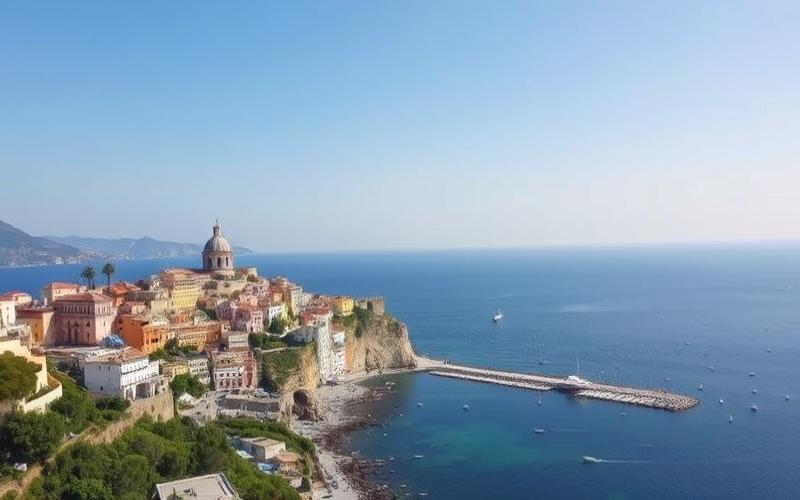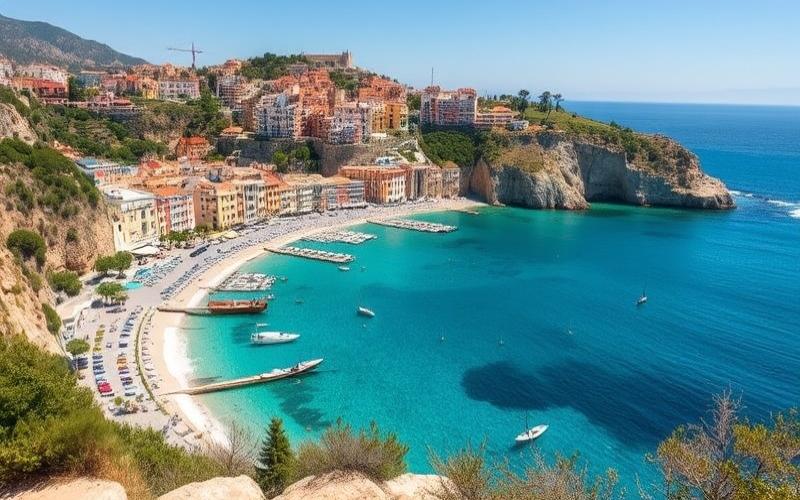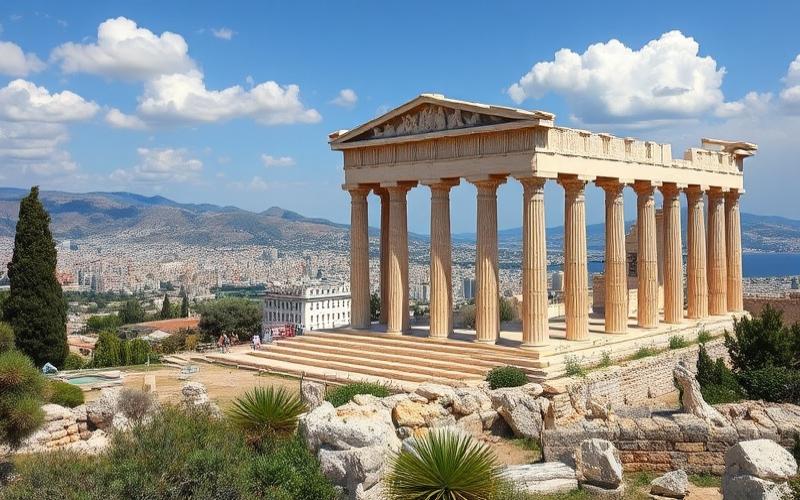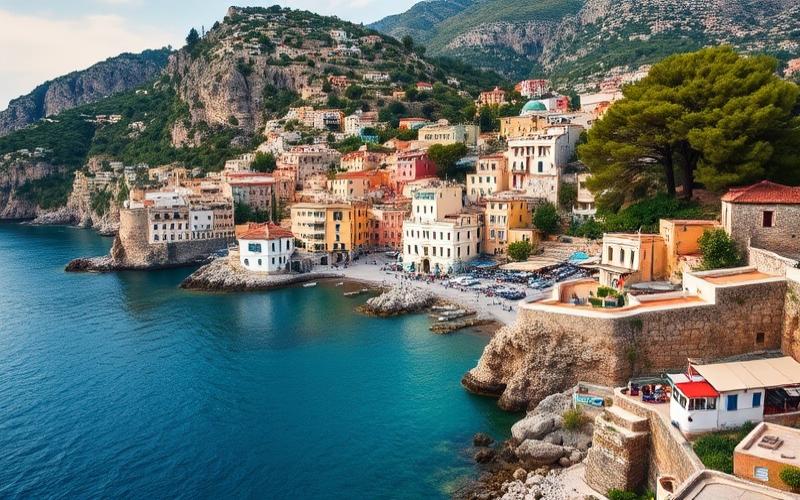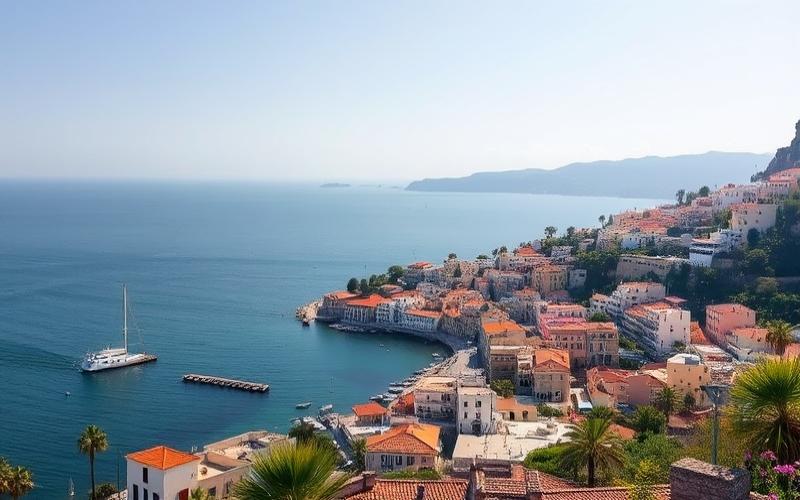
 Published on and written by Cyril Jarnias
Published on and written by Cyril Jarnias
Greece, the cradle of Western civilization, is a country where the Orthodox religion holds a central place in daily life and culture. For expatriates settling in this Mediterranean country, understanding and respecting local religious practices is essential for successful integration. This article will guide you through the most important aspects of religious life in Greece, allowing you to navigate this rich and complex cultural landscape with ease.
Greek Orthodoxy: Pillar of Culture and Society
The Greek Orthodox Church is much more than just a religious institution in Greece. It is deeply rooted in national identity and influences many aspects of daily life. Approximately 90% of the Greek population identifies as Orthodox, making it the country’s dominant religion.
Orthodox churches, with their characteristic domes and richly decorated icons, dot the Greek landscape, from major cities to the smallest villages. These places of worship are not just spaces for prayer, but also centers of community life, where Greeks gather to celebrate important life moments, from baptisms to weddings and funerals.
For expatriates, it’s important to understand that religion in Greece is not confined to the private sphere. It permeates public life, influencing work schedules, holidays, and even certain laws. For example, blasphemy is still considered a crime in Greece, although rarely prosecuted.
Good to know:
Even if you’re not Orthodox, it’s recommended to respect local religious traditions. This may include dressing modestly when visiting churches or monasteries, and observing silence during religious services.
The Greek Religious Calendar: Rhythm of Social Life
The Greek Orthodox calendar is marked by numerous holidays and celebrations that set the rhythm of the country’s social life. Understanding this calendar is crucial for expatriates, as it directly affects work schedules, school holidays, and the availability of public services.
Easter: The Supreme Celebration
Easter is undoubtedly the most important holiday in the Greek Orthodox calendar. Unlike most Western countries, the date of Easter in Greece is calculated according to the Julian calendar, meaning it often falls on a different date than Easter in the Catholic or Protestant world.
The week before Easter, called Holy Week or “Megali Evdomada,” is marked by daily religious services and specific traditions. Good Friday, or “Megali Paraskevi,” is particularly solemn, with processions of the Epitaphios (symbolic representation of Christ’s body) in the streets.
On Saturday evening, Greeks gather in churches for the midnight service, awaiting the proclamation “Christos Anesti” (Christ is risen). This is a moment of great joy, followed by fireworks and festivities. Easter Sunday is traditionally celebrated with family, featuring a feast of roasted lamb on the spit.
For expatriates, this is a unique opportunity to immerse themselves in Greek culture. Participating in local celebrations, even as a simple observer, can be an enriching experience and an excellent way to build connections with the local community.
Other Important Religious Holidays
– Christmas (December 25): Although less celebrated than Easter, Christmas remains an important holiday in Greece. Traditions include decorating boats rather than trees in some regions.
– Epiphany (January 6): Known as “Theofania” in Greece, this holiday is marked by the blessing of waters. In many coastal cities, young men dive to retrieve a cross thrown into the sea.
– Assumption (August 15): This feast of the Virgin Mary is the occasion for major pilgrimages, particularly on the island of Tinos.
– Ohi Day (October 28): Although this is a national holiday commemorating Greece’s refusal to submit to the Italian ultimatum in 1940, it also has a religious dimension with special services in churches.
Good to know:
During major religious holidays, many businesses and public services are closed. Expatriates are advised to plan accordingly, especially for shopping and transportation.
Impact on Daily Life: Necessary Adaptations for Expatriates
The omnipresent presence of religion in Greece may require certain adaptations from expatriates in their daily lives.
Dress Codes and Behavioral Norms
When visiting churches or monasteries, it’s important to dress modestly. This generally means covering shoulders and knees. In some monasteries, women may be asked to wear a long skirt (often provided at the entrance) and cover their heads.
It’s also important to respect behavior rules in places of worship:
– Avoid speaking loudly or laughing. – Don’t take photos without permission, especially during services. – Refrain from eating or drinking inside churches.
Fasting and Food
Fasting holds an important place in Greek Orthodox practice. The strictest fasting periods precede Easter and Christmas. During these periods, many Greeks abstain from consuming animal products.
For expatriates, this can translate to an increased offering of vegetarian and vegan dishes in restaurants during these periods. It’s also an opportunity to discover the rich Greek fasting cuisine, which includes delicious dishes like “dolmades” (stuffed grape leaves) or “fasolada” (bean soup).
Work Rhythm and Holidays
The religious calendar directly influences the work rhythm in Greece. Many holidays are linked to religious celebrations, and it’s not uncommon for businesses to close for several days around Easter or Christmas.
Expatriates working in Greece must be aware of these particularities and adapt their schedules accordingly. It’s also important to note that Sunday is generally considered a day of rest, with many businesses closed, especially in small towns.
Good to know:
Some Greek companies may organize religious celebrations in the workplace, such as blessing the premises by a priest at the beginning of the year. Participation in these events, even for non-Orthodox individuals, is often appreciated as a gesture of respect toward the local culture.
Religious Freedom and Practice of Other Religions in Greece
Although the Orthodox Church holds a predominant place, Greece is a secular state that guarantees freedom of worship. Expatriates of different faiths can generally practice their religion without hindrance, although infrastructure for some minority religions may be limited in small towns.
Minority Religious Communities
– Islam: The largest religious minority in Greece, mainly concentrated in Thrace and major cities. – Catholicism: Present mainly in the Ionian Islands and some Cycladic islands. – Judaism: Small communities exist in major cities, particularly Athens and Thessaloniki. – Protestantism: Various denominations are represented, though in small numbers.
For expatriates belonging to these communities, it’s recommended to inquire with cultural associations or embassies to find places of worship and support groups.
Resources for Expatriates
– Expatriate associations: Often a good source of information for finding places of worship or religious practice groups. – Embassies and consulates: Can provide information about religious communities from their country present in Greece. – Online platforms: Websites like ExpatsinGreece.com or InterNations offer forums where expatriates share information about religious practice.
Conclusion: Respect and Openness, Keys to Successful Integration
Understanding and respecting local religious practices is essential for successful integration in Greece. Whether you’re a believer or not, religion permeates many aspects of Greek daily and social life. By adopting an open and respectful attitude toward these traditions, expatriates can not only avoid cultural missteps but also enrich their living experience in Greece.
Participating in local celebrations, even as an observer, can be an excellent way to immerse yourself in Greek culture and build connections with the local community. At the same time, Greece generally offers a tolerant environment for the practice of other religions, allowing expatriates to maintain their own traditions while adapting to their new living environment.
Ultimately, navigating the Greek religious landscape as an expatriate is an exercise in balance between respecting local traditions and maintaining one’s own cultural and spiritual identity. It’s this balanced approach that will enable a rewarding and harmonious expatriate experience in Greece.
Good to know:
Religion in Greece is often experienced more culturally than strictly dogmatically. Many Greeks, while identifying as Orthodox, have a flexible approach to religious practice. This attitude can facilitate the integration of expatriates, regardless of their own religious orientation.
Disclaimer: The information provided on this website is for informational purposes only and does not constitute financial, legal, or professional advice. We encourage you to consult qualified experts before making any investment, real estate, or expatriation decisions. Although we strive to maintain up-to-date and accurate information, we do not guarantee the completeness, accuracy, or timeliness of the proposed content. As investment and expatriation involve risks, we disclaim any liability for potential losses or damages arising from the use of this site. Your use of this site confirms your acceptance of these terms and your understanding of the associated risks.


